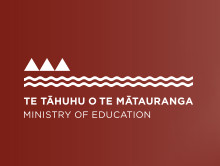Ranginui
nā Tipene Watson
This poem describes vehicle pollution and one of its effects on Ranginui. The author’s intent is to encourage the reader to feel empathy with Ranginui.
Ngā hononga ki te marautanga
Te Reo Māori i roto i te Marautanga o Aotearoa (wh. 60, 68, 77, 86, 95, me 103)
| Whenu | Whakarongo (Kōrero) |
| Kōeke | 3 |
| Whāinga paetae | Ka whakarongo, ka mārama, ka pāhekoheko te ākonga kia mau, kia roa ai ngā whiriwhiri ā-rōpū i ngā tūmomo horopaki ako katoa. |
| Pūkenga | Ko te maumahara, ko te whakautu i ngā ariā matua me ngā pātai e pā ana ki ngā horopaki e taunga ana te ākonga. |
| Whenu | Kōrero (Whakarongo) |
| Kōeke | 3 |
| Whāinga paetae | Ka taea e te ākonga te kōrero, te pātai, te whakaputa ōna ake whakaaro ki te hunga ākonga, ā, me raupapa, me mārama te kōrero. |
| Pūkenga | Ko te whakapuaki i ngā kōrero māmā hei whakaaritanga poto e kitea ai ngā mōhio e tika ana kia whakaaturia. |
| Whenu | Pānui (Tuhituhi) |
| Kōeke | 3 |
| Whāinga paetae | Ka taea e te ākonga te tīpako mai me te pānui ngā tuhinga, hei whakangahau, hei whakaea hoki i ngā kaupapa kua whakaritea. |
| Pūkenga | Ko te tīpako i ngā ariā matua mai i ngā pānui. |
| Whenu | Tuhituhi (Pānui) |
| Kōeke | 3 |
| Whāinga paetae | Me mārama, me whai hua tā te ākonga tāna tuhi i ngā momo tuhinga huhua noa. |
| Pūkenga | Ko te tīpako i ngā momo tuhituhi e hāngai ana ki te kaupapa me te pūtake o te kōrero. |
| Whenu | Mātakitaki (Whakaatu) |
| Kōeke | 3 |
| Whāinga paetae | Ka mātakitaki, ka mārama te ākonga ki ngā momo reo ataata, reo ā-waha, me te mōhio anō ki te pānga o tētahi ki tētahi. |
| Pūkenga | Ko te auahatanga o te whakaaro reo ataata. |
| Whenu | Whakaatu (Mātakitaki) |
| Kōeke | 3 |
| Whāinga paetae | Ka taea e te ākonga te whakamahi ngātahi te reo ā-waha me te reo ataata kia puta ai ngā pānga e hiahiatia ana. |
| Pūkenga | Ko te tāutu i te pūtake o tētahi kōrero kia whakaaturia atu. |
- Read the title with the group. Using the Timed Talking strategy, get the students to talk about the title and picture, sharing what they know about Ranginui and making predictions about the content of the poem. After reading the poem, have the students gauge the accuracy of their predictions.
- Divide the class into groups of three. Have each group research the effects of global warming on Ranginui. When they have completed their research, get them to write a third verse that is consistent with the kaupapa and rhythm of the poem.
- Each group writes a report about the effects of global warming on Ranginui that supports the ideas in their new verse.
- Have each group design a mural to illustrate their new verse for the poem. Get the students to take their mural with the poem and new verse to share with another class.
Each member of the group should have a role:
- One student reads the poem
- One student explains what they have learnt
- One student answers questions.
Ask the groups to repeat this activity with another class, with students within the group changing roles.
Aromatawai
Ka whakaaturia tana tohungatanga ki te:
- whai māramatanga mai i ngā tuhinga, ahakoa ngā kupu hou, ngā kīanga hou
- whakamahi i ngā āhuatanga reo ataata e puta ai ngā hua e pīrangitia ana.



